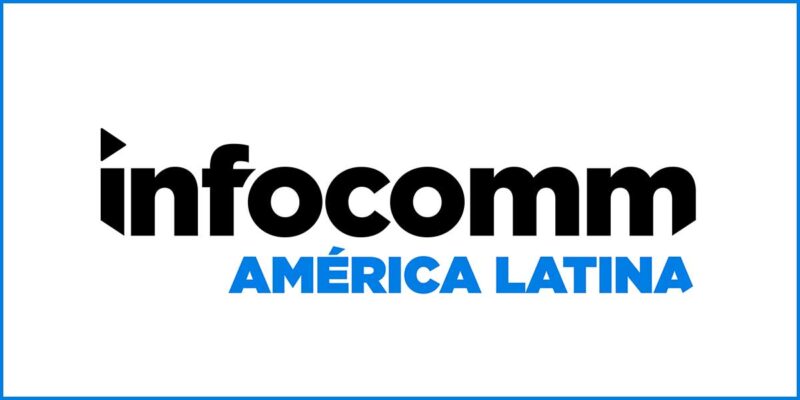What Would Be in My AV Degree
I woke up Sunday morning to some interesting Twitter conversation started by fellow AV professional Chris Neto about the subject of AV education. The question revolved around whether or not certifications or formal college education is more important in qualifying someone to be successful in the field of AV.
To break down the responses in a very rudimentary way, this seemed to be the general consensus.
-
Industry association training like CTS certifications from AVIXA demonstrates a basic working knowledge of AV that means the individuals should be adept at understanding the underlying concepts, with specialized certifications like CTS-D and CTS-I illustrating a deeper knowledge of design and installation respectively.
-
Manufacturer certifications on specific products, like Crestron’s DMC-D-4K certification on its Digital Media products, are even more trusted as a sign of competence than general industry certifications.
-
College education holds weight in the engineering fields, while general college education is more important for critical thinking skills, but not immediately relevant to AV specifically.
My personal opinion based on 18 years in the technology industry is that this consensus feels true to me.
As a form of anecdotal support for these ideas, I offer the story of my friend the IT project manager. He ran several software projects as a project manager, managing a new piece of software or the revisions of existing ones. The nature of that role is every year or two, you have to be signed to a new project, either with the existing company or a new one. When trying to land a role with a new company, even though he had both Bachelor’s and Master’s degrees in Information Systems, he was always asked if he had his CCNA. He quickly responded that he didn’t, but that he had seven years of formal college most CCNAs did not. It was always a challenge to get the people doing the hiring to realize his knowledge far exceeded the CCNA because they were conditioned to look for and trust those initials.
It would be great to see our industry certifications also become the bellwether for good hiring sometime in the near future.
Although college seems to play third fiddle to industry and manufacturer certifications in AV, I have always pondered what an AV degree would look like. I know schools across the country won’t easily create a custom curriculum for this purpose, so I decided to take a look at existing courses offered at many universities in order to create an educational track that would give a strong foundation to those pursuing AV careers. So with that, I submit a list of what would be included in my AV curriculum.

Year One
Semester One
Psychology 101 – 3
Biology 181 General Biology I – 4
English 101 First Year Composition – 3
Math 117 College Algebra – 3
Semester Two
Psychology 290 Research Methods – 3
Biology 182 General Biology II – 4
English 102 First Year Composition -3
Math 119- Finite Math – 3
Year Two
Semester Three
Psychology 323 Sensation and Perception – 3
Biology 331- Animal Behavior – 3
Physics 121 & 122 Mechanics and Lab – 4
Architecture 121 Design Fundamentals I -3
Semester Four
Psychology 324 Memory and Cognition – 3
Physics 131 & 132 Electricity and Magnetism and Lab – 4
Architecture 122 Design Fundamentals II – 3
Chemistry 101 Introductory Chemistry – 4
Year Three
Semester Five
Communication 100 Introduction to Human Communication – 3
Computer Information Systems 105 Computer Applications and Information Technology – 3
Economics 212 Macroeconomic Principles – 3
Chemistry 101 Introductory Chemistry – 4
Semester Six
Computer Information Systems 311 Business Project Management – 3
Business 384- Business Operations and Planning -3
Economics 221 Business Statistics – 3
Chemistry 113 General Chemistry I – 4
Year Four
Semester Seven
Supply Chain Management 300 Global Supply Operations – 3
Music Theory and Composition 422 Musical Acoustics – 3
Accounting 101 – 3
Architectural Design and Technology 242 Intro to Architectural Technology – 3
Semester Eight
Supply Chain Management 321 Business Decision Models – 3
Music Theory and Composition 436 Electronic Studio Techniques – 3
Architectural Design and Technology 321 Architectural Studio I – 4
Future of Innovation in Society 336 Science and Technology Policy – 3
The core skillsets of science, math, oral and written communication, business planning and project management, economics and accounting, architectural design and technology are all covered, as well as the often forgotten topics of animal behavior and behavioral psychology.
I understand that not all roles will need all of these skillsets, but I also know that the more you know about the process and other people’s roles, the more effective you become as a teammate and the more valuable you become as an employee.
It never hurts to have a basic idea of how the cake is baked.
Did I miss something that you would include? If so, I’d love your thoughts in the comments below.





